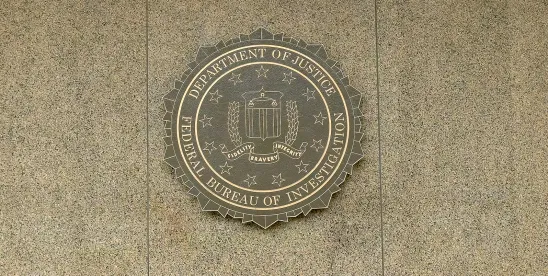On June 11, 2025, the U.S. Department of Justice (DOJ) Civil Division issued an internal memorandum outlining its latest enforcement priorities. The memo, signed by Assistant Attorney General Brett Shumate, directs DOJ attorneys to advance the administration’s goals through targeted civil enforcement. One of the priorities highlighted in the memo is denaturalization, or the process of revoking U.S. citizenship acquired through naturalization.
The memo outlines several areas of civil enforcement the DOJ plans to prioritize, including litigation involving alleged violations of federal civil rights laws by recipients of federal funds, enforcement actions related to antisemitism, investigations into gender-related health care practices, and challenges to state or local policies that conflict with federal immigration law (sanctuary jurisdictions). Denaturalization is identified as a key area of focus for enforcement.
What Is Denaturalization?
Denaturalization is a civil action used to revoke U.S. citizenship from individuals who obtained it unlawfully. Under federal law (8 U.S.C. § 1451), the government may initiate proceedings in federal court when it believes someone was ineligible for naturalization or obtained citizenship by concealing or misrepresenting key facts. The individual has the right to legal representation, and the government carries the burden of proof. If successful, denaturalization may result in the loss of citizenship and eventual removal from the United States.
Although this legal tool has existed for decades, it has traditionally been used sparingly and reserved for exceptional cases—typically involving individuals linked to war crimes, terrorism, or major immigration fraud.
Renewed Enforcement Emphasis
Over the past several years, denaturalization has received increased attention as an enforcement tool. During the first Trump administration, the DOJ expanded its focus on identifying cases in which naturalization may have been obtained through fraud or serious misconduct, and a dedicated Denaturalization Section was established in 2020 to pursue a broader range of denaturalization actions.
The June 2025 memo continues that trajectory, directing Civil Division attorneys to “prioritize and maximally pursue denaturalization proceedings in all cases permitted by law and supported by the evidence.”
Categories of Focus
To guide enforcement efforts, the memo outlines 10 categories of individuals whose cases should be prioritized. These include:
- Individuals who pose a threat to national security, including those connected to terrorism, espionage, or unlawful export of sensitive U.S. technologies;
- Human rights violators, such as individuals involved in war crimes or torture;
- Affiliates of transnational criminal organizations, gangs, or drug cartels;
- Individuals who committed serious criminal offenses that were not disclosed during the naturalization process;
- Those convicted of human trafficking, sex offenses, or violent crimes;
- Individuals who engaged in fraud involving U.S. government programs (e.g., Paycheck Protection Program or Medicaid/Medicare fraud);
- Individuals who committed large-scale financial fraud against private entities;
- Cases involving citizenship obtained through bribery, misrepresentation, or other corruption;
- Cases referred by U.S. Attorney’s Offices in connection with other criminal charges; and,
- Any other case the Civil Division determines sufficiently important to pursue.
The list is not exhaustive. The memo makes clear that the DOJ retains discretion to pursue denaturalization in other cases where it deems enforcement appropriate.
Takeaways
While the legal standard for denaturalization remains high, the memo makes clear that the Civil Division plans to take a more proactive approach in cases involving suspected fraud or misconduct. For those who have already naturalized—or for lawful permanent residents preparing to apply—it reinforces the importance of ensuring the process is completed accurately and with care.
Although denaturalization actions remain relatively uncommon, they appear to be a more visible part of federal civil enforcement. For individuals navigating the naturalization process, or revisiting concerns about past filings, this development highlights the importance of accuracy and full compliance. Working with experienced immigration counsel may help ensure the process is completed properly and may reduce the risk of issues arising later.


 />i
/>i
